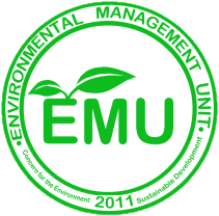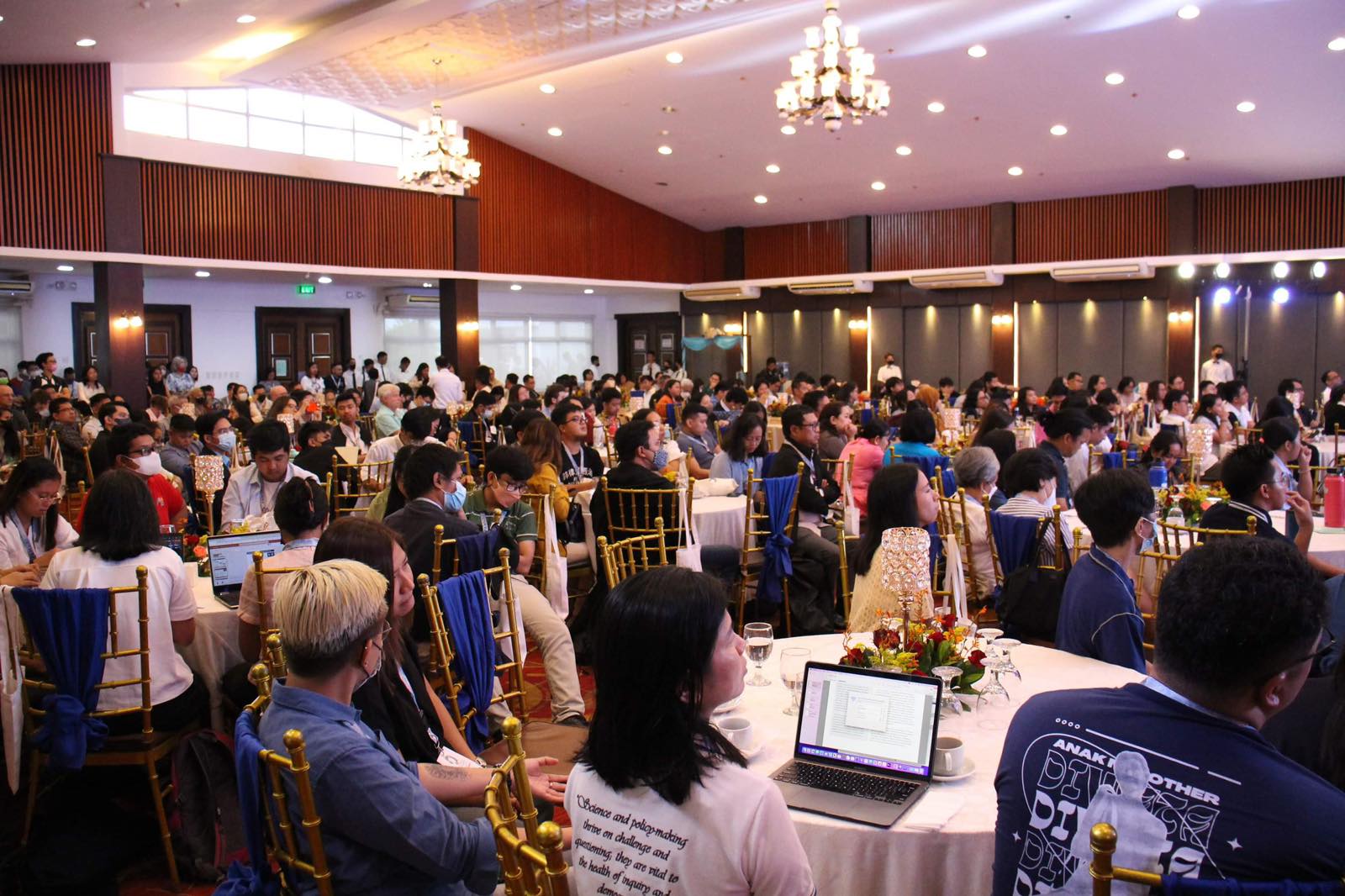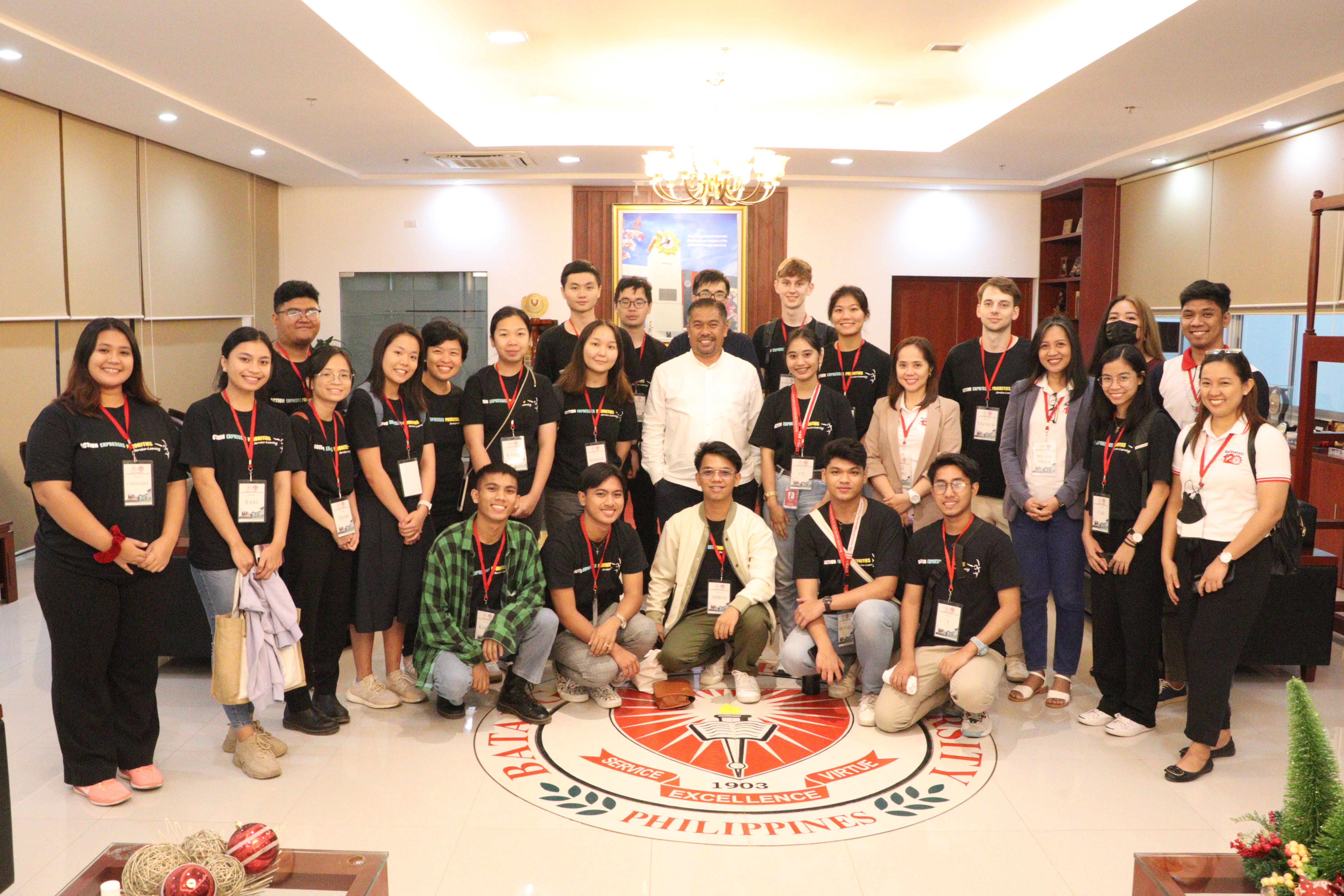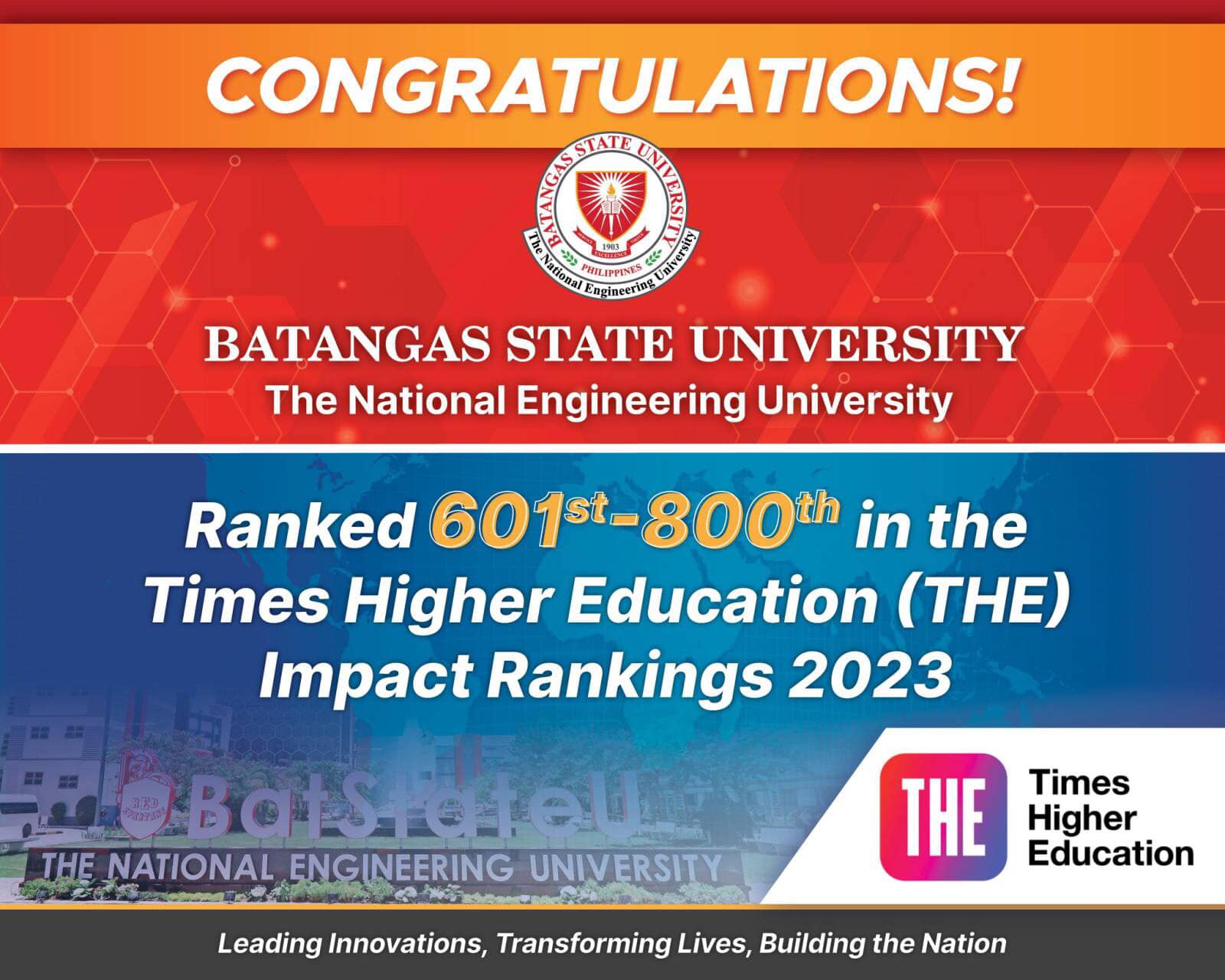
Environmental Management Unit
- Home
- /
- Programs
- /
- Disaster Risk Reduction and…
- /
- Environmental Management Unit

Overview of the Environmental Management Unit
As an institution committed in ensuring to be environmentally sustainable, Batangas State University applied for and was issued an Environmental Compliance Certificate (ECC), ECC-R4A-0911-0099. In compliance with one of the conditions of ECC-R4A-0911-0099 issued to Batangas State University, the Environmental Management Unit (EMU) was created on January 5, 2011.
Moreover, EMU is created to ensure that environmental sustainability is implemented in all Batangas State University campuses. It implements the policies set by the Department of Environmental and Natural Resources (DENR) as cited in the ECC, and is responsible for securing the environmental records, compliance certificates and licenses of the university.
Goals of EMU
The main goal of Environmental Management Unit (EMU) is to implement programs and activities that will maintain a sustainable and eco-friendly campus.
In line with one of the University Strategic Plan 2019-2029’s thematic areas, Sustainability, EMU ensures compliance of the University to all legal environmental requirements as prescribed by RA 9275, RA 8749, RA 9003, RA 6969, and PD 1586. More so, clients are provided with assistance on environmental issues and concerns to mitigate and control any potential risk to environment, health and safety, and public health.
To ensure environmental sustainability in the University, the Unit handles the following:
- Operation of Sewage Treatment Plant (STP)
This is to collect wastewater generated from buildings and provide applicable treatment prior to its disposal whose effluent complies with general effluent standard set by Department of Environment and Natural Resources through DENR AO 2016 -08. - Solid Waste Handling, Recovery and Disposal
This is to transfer wastes from collection points to the temporary waste disposal area. The wastes are sorted and segregated, classified as recyclables and residual wastes. The recyclables materials are recovered from the waste stream and residual wastes are transported to the nearest Sanitary Landfill. - Hazardous Waste Management
This is to properly store hazardous wastes and ensure transport, treatment and disposal by DENR – accredited external provider. - Monitoring of Water and Energy Consumption
This is to perform periodic reading of sub-meters for water and electricity together with the collation of water and electric bills with available database for water consumption and contracted electricity. The data is used as a planning tool for decision- and policy-making. - Secure Permits/Certificates
This is to ensure that applicable and valid permits from concerned agencies are available and readily accessible. An Environmental Compliance Certificate (ECC), Wastewater Discharge Permit, Permit to Operate of APSI, Water Permit for Deep wells, and Hazardous Waste Generator Registration Certificates are updated and available. - Environmental Education
This is to provide awareness to students, faculty, employees and visitors through seminar/orientation, environmental signage, and Information Education Campaign (IEC) Materials. The materials are available upon request in the Office of EMU such as Flyers, posters, and PowerPoint presentations for seminar/training. - Assistance to Clients
This is to provide assistance to clients/customers on their environmental concerns and issues that need immediate and proper actions to prevent pollution on water, air and land including control of damage to property and public health. The assistance for any concern/issues by the clients shall be provided using the prescribed form. - Environmental Compliance Permit
This is to issue permit for canteen operators/tenant to regulate activities to prevent negative impact to the environment. This is secured for free but permit holders shows commitment towards environmental protection and conservation.
Programs and Projects under EMU
- Waste Management System
Waste Management System is a systematic way of collection, transportation, treatment and disposal of generated wastes in the Campus. Wastes are discarded materials of the Campus either in solid, liquid or gas form. The wastes generated in every premise are safely collected, processed and disposed so as not to cause negative environmental and health impact. Institutional wastes are being monitored, recorded, evaluated and reported to regulatory agencies showing compliance to environmental regulations. BatStateU has five (5) basic components on waste management, namely: Solid Waste Management, Wastewater Management, Hazardous Waste Management, Personal Protective Equipment (PPE) Disposal and Air Exhaust Management. Each of these components are discussed below in detail.- Solid Waste Management
In minimizing the waste generated by the university, it is encouraged to purchase environmentally acceptable, durable, and cost-effective products. Through online info graphics, webinars, seminars and posters, the students, faculty members and staff are educated and informed about the importance of segregation and waste reduction. At source, generated wastes in the campus are segregated to maximize the energy recovery. All generated wastes are recorded and updated as a basis in compliance with RA 9003. - Wastewater Management
In minimizing the waste generated by the university, it is encouraged to purchase environmentally acceptable, durable, and cost-effective products. Through online info graphics, webinars, seminars and posters, the students, faculty members and staff are educated and informed about the importance of segregation and waste reduction. At source, generated wastes in the campus are segregated to maximize the energy recovery. All generated wastes are recorded and updated as a basis in compliance with RA 9003. - Hazardous Waste Management
The campus is registered as a hazardous waste generator. The types of waste generated by the campus are: B206 – Mixture of sulfuric and hydrochloric acid; D407 – Mercury and mercury compounds; J201 – Containers previously containing toxic chemical substances; M501 – Pathological or infectious wastes; and I101 – Used industrial oil including sludge. The Campus, at all times, must comply with the requirements of RA 6969, its implementing rules and regulations and the Procedural Manual for Hazardous Wastes Management. - Personal Protective Equipment (PPE) Disposal
In compliance to the requirements stated in BatStateU Crisis Management Plan with Board Resolution No. 107 Series of 2020 under Public Health Risk Mitigation Guideline due to COVID-19, the office of EMU of each campuses allocated trash bins solely for Miscellaneous Waste, specifically for M501 Pathological or Infectious Waste. These trash bins are intended for the safe collection and disposal of waste gloves, facemasks, PPEs, etc. used for protection against COVID-19. - Air Exhaust Management
All air pollution source equipment (APSE) in the campus is periodically maintained. All exhaust from any APSE is periodically monitored and tested to ensure compliance to standards. All gases released from APSE are treated, if applicable, so as not to induce negative environmental and health impact. Reports are submitted to the regulatory agency in compliance with the RA 8749.
- Solid Waste Management
- Bring-your-own Container Policy
This policy is supplementary to the waste management policy of the University. This addresses the importance of waste reduction in single-use food and beverages packaging to conserve natural resources and provide the stakeholders a cleaner and healthier environment. - Energy Conservation Program
Administrative Order 103, which directs the continued adoption of austerity measures in the government, remains in force. In pursuant thereof and as part of the University’s prudent fiscal management, Batangas State University implements Energy Conservation Program.
Latest News

CSD pioneered Data Management Training for Sustainability Reporting

BatStateU-The NEU hosts 17th National Symposium on Marine Science, Advocating Marine System Restoration

BaStateU, LU partners for Joint Humanitarian Entrepreneurship Summer Academy

Batangas State University-TNEU, soars high in the THE Impact Rankings 2023

BatStateU sows seeds of sustainability in tree planting drive
Calendar

